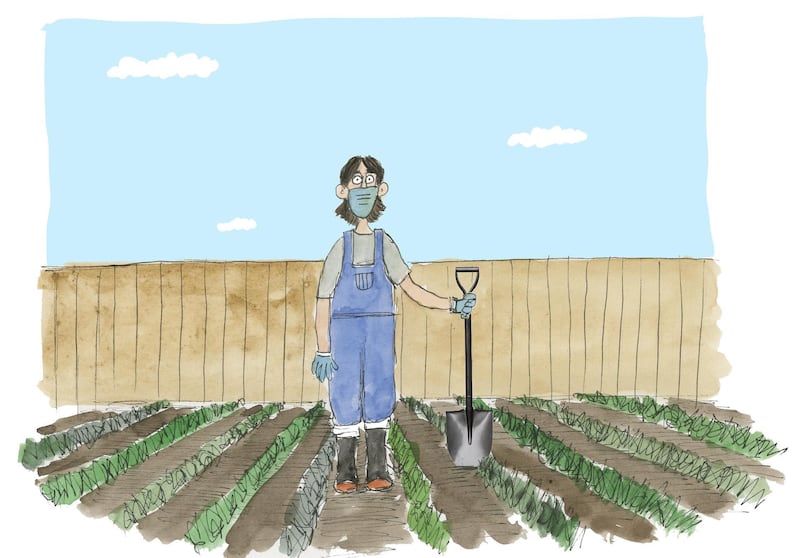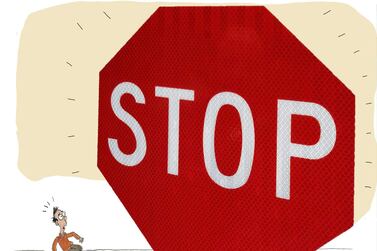Forget about saving money, this is about surviving. And forget about shopping for food, pick up a shovel instead and grow your own. Think of covering the basics, because no one knows what'll happen next.
Then, when it's all over – and it will end at some point – you could continue to choose shovel over shopping trolley, and put the money you save in to some form of investment to grow a money tree too.
Starting a garden isn't free, but it certainly outweighs the rising costs of buying in produce from a supermarket every month, especially if you add on the time it takes for you to get to the shop, petrol or taxi fare, and your time there. These costs are variable and unique to you. Why don’t you work them out?
Here’s what you need to know to make the calculation:
• The petrol cost per kilometre for your car
• The number of kilometres to the shop and back
• How long it takes you to get there, shop for produce and get back – so, the time it takes you door-to-door
• How much you earn an hour (this is a great thing to know anyway)
Then you add on the cost of the produce you buy at the supermarket. The total is your real monthly spend, not the amount that shows up on your supermarket invoice.
You already know that starting your own vegetable patch will cost you significantly less.
Now consider this: If the cost to do the monthly shop costs you $100 (Dh367.5), then imagine what might happen if you choose to save that money instead. Over the course of the year, that $1,200 will become $1,369.70 if you factor in the compounding on interest of 2 per cent.
Do it for five years, and your total deposit of $6,000 becomes $11,714.18.
This is what I mean by growing a money tree. The cash you use to pay for the produce at the supermarket can be put aside to work for you if you learn to grow your own fruit and vegetables at home.
Right now, however, it's a case of knowing you have access to basic food staples, such as tomatoes, potatoes and herbs.
Years ago, when I worked for BBC World as a journalist, I interviewed many a head of government and industry across the region about the issue of, and panic over, food security.
The global food shortage of 2007-2008 – brought about by a combination of high oil prices, a greater demand for biofuels and export restrictions – led to many deals to ensure countries could grow their own produce and have access to food for their own consumption. Farmland in faraway nations was being bought to grow fruit and vegetables that would be shipped to the home-nation for local consumption.
Food scarcity was real, and food security was the deal.
However, when it goes wrong – as we have seen in recent weeks – borders can close, contracts are ignored, and food goes to those who need it within the country first.
In other words, you can't buy food security, but you can create it.
It can be as simple as growing herbs and vegetables in pots indoors, or – if you're lucky – in a garden outside. Yes, it can be harder to successfully grow produce at home in the UAE in the hot summer months, but it's still possible. And this is the time to go for it.
Other upsides include your children wanting to eat what they've grown, and with many weeks and months of uncertainty looming ahead, your plants might be just the thing to relieve stress as you tend to them.
Plus, here’s another silver lining: how about a big 'yes' to relearning lost knowledge?
What’s unfolding around the world is a threat to us all. No one can crystal ball gaze this one. So, cover your basics. And when this is over – and it will be – how about staying the course and keeping your grocery garden at home.
Last night my son told me that what is happening right now is nature's revenge. Well, perhaps not revenge – that indicates a premeditated, deliberate act – but it’s certainly bringing home the knowledge that it's not mother earth that's in danger of being wiped out, it's us mere mortals.
This is an opportunity to wean ourselves off the addiction to 'I want it right now' consumerism. We'll all be better off for it.
Nima Abu Wardeh is a broadcast journalist, columnist, blogger and founder of S.H.E. Strategy. Share her journey on finding-nima.com







